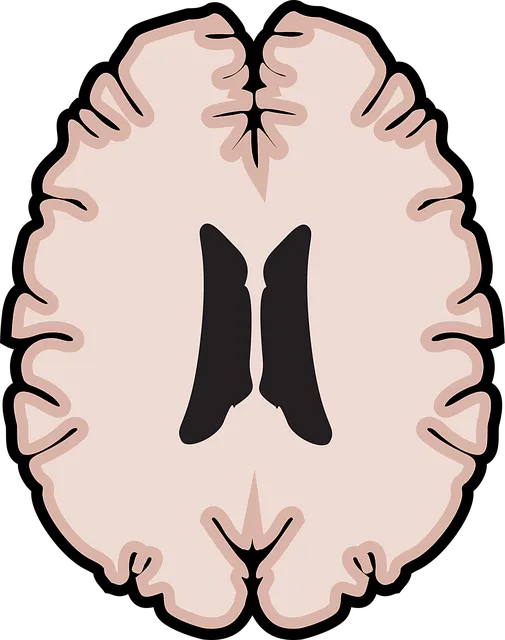Greenwood Village Kaiser Permanente's mental health providers utilize Positive Thinking Exercises (cognitive reframing) as transformative tools in therapy, aiding clients with stress management, building confidence, and promoting healthier relationships. By integrating these exercises, they empower individuals to navigate life's challenges with resilience and enhanced coping mechanisms, revolutionizing care through holistic optimism. Success is measured through patient well-being assessments, tracking progress, and tailoring techniques based on comfort level, cultural background, and personal preferences.
“Unleash the power of positive thinking with our comprehensive guide, tailored for mental health professionals. Explore the transformative potential of exercises designed to enhance well-being at Greenwood Village Kaiser Permanente. Learn how these strategies can be seamlessly integrated into therapy sessions, catering to diverse patient needs. From effective techniques to measuring success, this article equips mental health providers with tools to optimize patient outcomes and foster resilience in a supportive environment.”
- Understanding Positive Thinking Exercises: A Brief Overview for Mental Health Professionals
- Integrating Positive Thinking into Therapy Sessions at Kaiser Permanente, Greenwood Village
- Choosing the Right Techniques: Effective Positive Thinking Exercises for Different Patient Needs
- Measuring Success and Tracking Progress: Evaluating the Impact of Positive Thinking on Patient Well-being
Understanding Positive Thinking Exercises: A Brief Overview for Mental Health Professionals

Positive Thinking Exercises, also known as cognitive reframing or optimism training, are structured interventions designed to help individuals cultivate a more positive mindset and improve their overall well-being. This approach is increasingly recognized as a valuable tool within the realm of mental health treatment, particularly for Greenwood Village Kaiser Permanente mental health providers. These exercises aim to challenge and replace negative thought patterns with more adaptive and positive ones, thereby enhancing one’s outlook on life and promoting better mental health.
For mental health professionals, integrating Positive Thinking Exercises into therapy sessions can be a game-changer. It offers a practical way to support clients in developing coping strategies for stress management and building confidence. Moreover, these exercises can facilitate Social Skills Training by encouraging individuals to adopt more positive interactions with themselves and others, fostering healthier relationships and an improved sense of self.
Integrating Positive Thinking into Therapy Sessions at Kaiser Permanente, Greenwood Village

At Greenwood Village Kaiser Permanente, mental health providers are integrating positive thinking exercises into therapy sessions to enhance patient care. This innovative approach leverages the power of positivity to accelerate emotional healing processes and foster inner strength development among individuals seeking trauma support services. By incorporating techniques that encourage optimistic perspectives, therapists create a supportive environment where patients can cultivate resilience and cope more effectively with life’s challenges.
The implementation of these positive thinking exercises is part of a broader strategy to holistically address mental well-being. Through structured activities and discussions, clients are guided to reframe negative thoughts, focusing on solutions rather than problems. This shift in mindset empowers individuals to take charge of their emotional healing processes, fostering self-confidence and a sense of agency. As a result, patients at Greenwood Village Kaiser Permanente not only receive professional therapy but also gain valuable tools to navigate life’s complexities with enhanced inner strength and resilience.
Choosing the Right Techniques: Effective Positive Thinking Exercises for Different Patient Needs

Selecting the appropriate positive thinking exercises is key to addressing diverse patient needs at Greenwood Village Kaiser Permanente, where mental health providers play a vital role. The choice of techniques should be tailored to individuals’ unique circumstances, whether dealing with stress, anxiety, or even depression prevention. For instance, mindfulness meditation and cognitive reframing are powerful tools for enhancing emotional intelligence and managing negative thought patterns. These exercises can help patients cultivate a more optimistic outlook, an essential aspect of overall well-being.
Mental health professionals should consider the patient’s comfort level, cultural background, and personal preferences when recommending specific practices. For those at risk or struggling with mental health issues, a comprehensive approach may be necessary. This could involve incorporating techniques like gratitude journaling and positive self-talk into daily routines, fostering resilience and coping mechanisms. By offering personalized guidance, Greenwood Village Kaiser Permanente’s mental health providers can empower individuals to navigate life’s challenges more effectively.
Measuring Success and Tracking Progress: Evaluating the Impact of Positive Thinking on Patient Well-being

Measuring success and tracking progress are crucial aspects when implementing positive thinking exercises, especially in a healthcare setting like Greenwood Village Kaiser Permanente, where mental health providers prioritize patient well-being. By evaluating the impact of these interventions, healthcare professionals can assess whether positive thinking techniques effectively promote emotional well-being promotion techniques, reduce anxiety relief, and foster resilience building.
One way to gauge success is by collecting qualitative and quantitative data from patients before and after participating in positive thinking programs. This may include surveys, interviews, or self-reported measures that capture changes in mood, stress levels, and overall life satisfaction. Such assessments help identify the specific benefits of each exercise and allow mental health providers to tailor their approaches for optimal patient outcomes.
Positive thinking exercises, when thoughtfully integrated into therapy sessions at Greenwood Village Kaiser Permanente by mental health professionals, can significantly enhance patient well-being. By choosing techniques tailored to individual needs and consistently measuring success through tracking progress, healthcare providers can empower patients to cultivate a more optimistic outlook. This approach not only complements traditional therapeutic methods but also fosters resilience, improves mental health outcomes, and enriches the lives of Kaiser Permanente’s diverse patient population in Greenwood Village and beyond.






